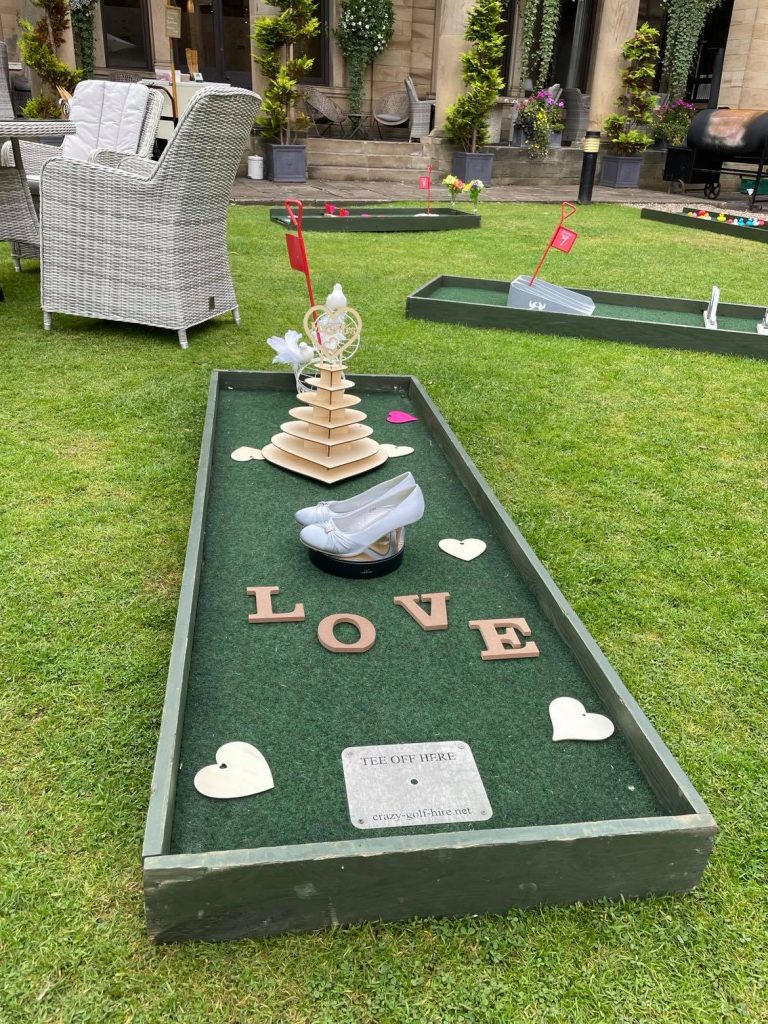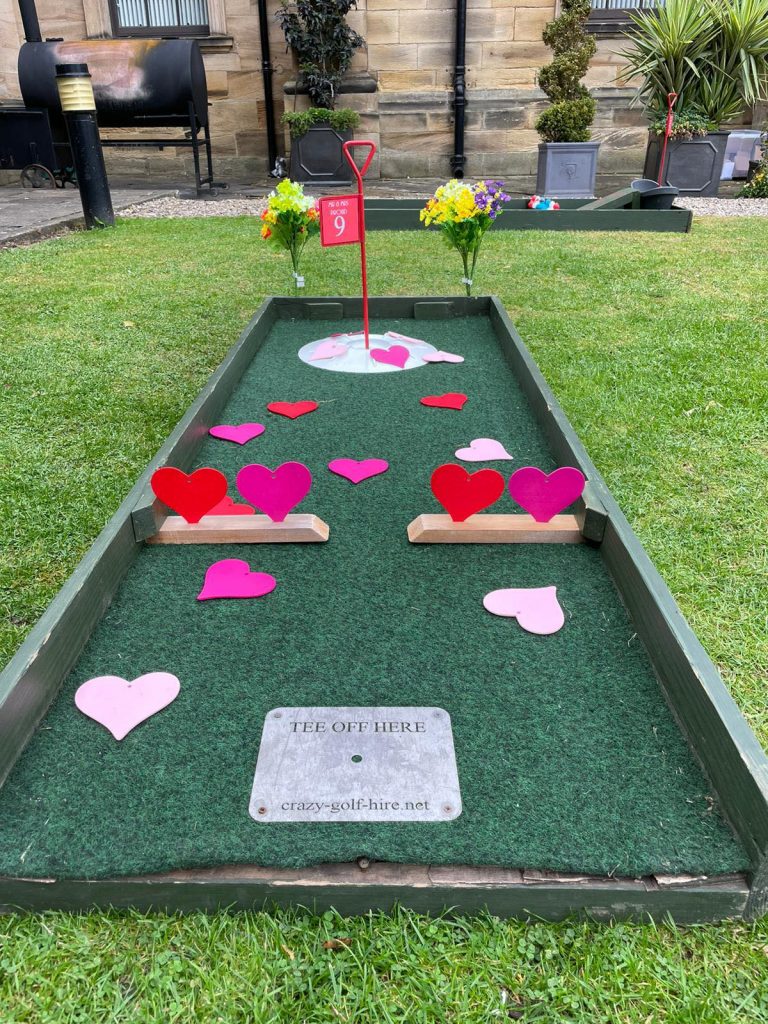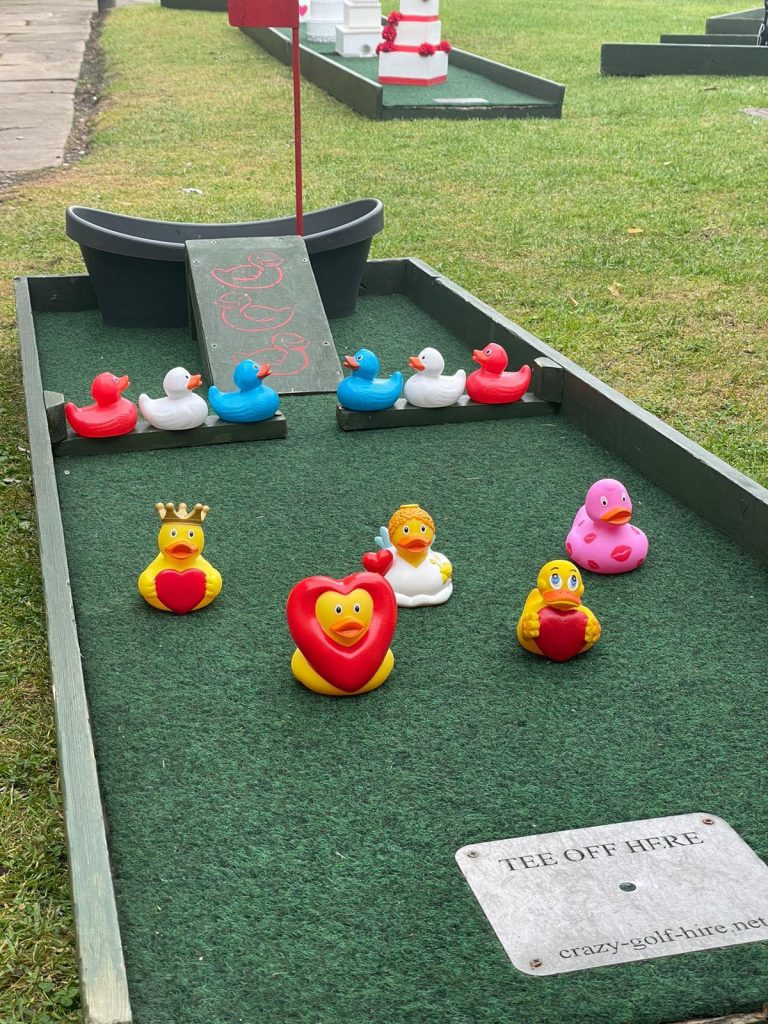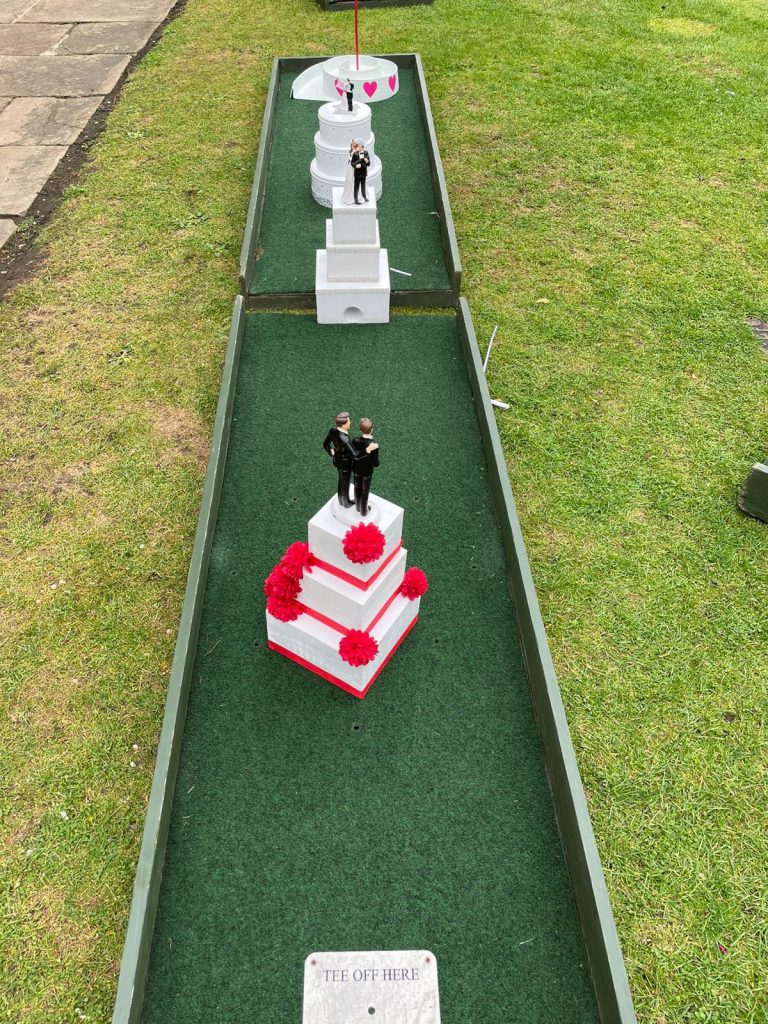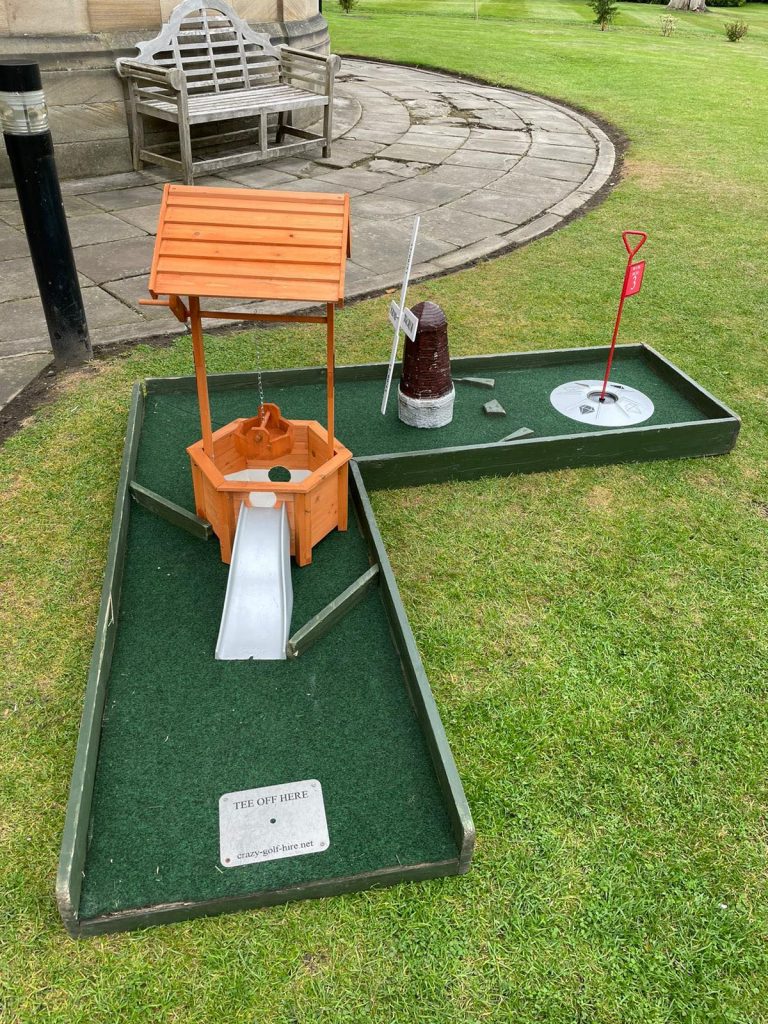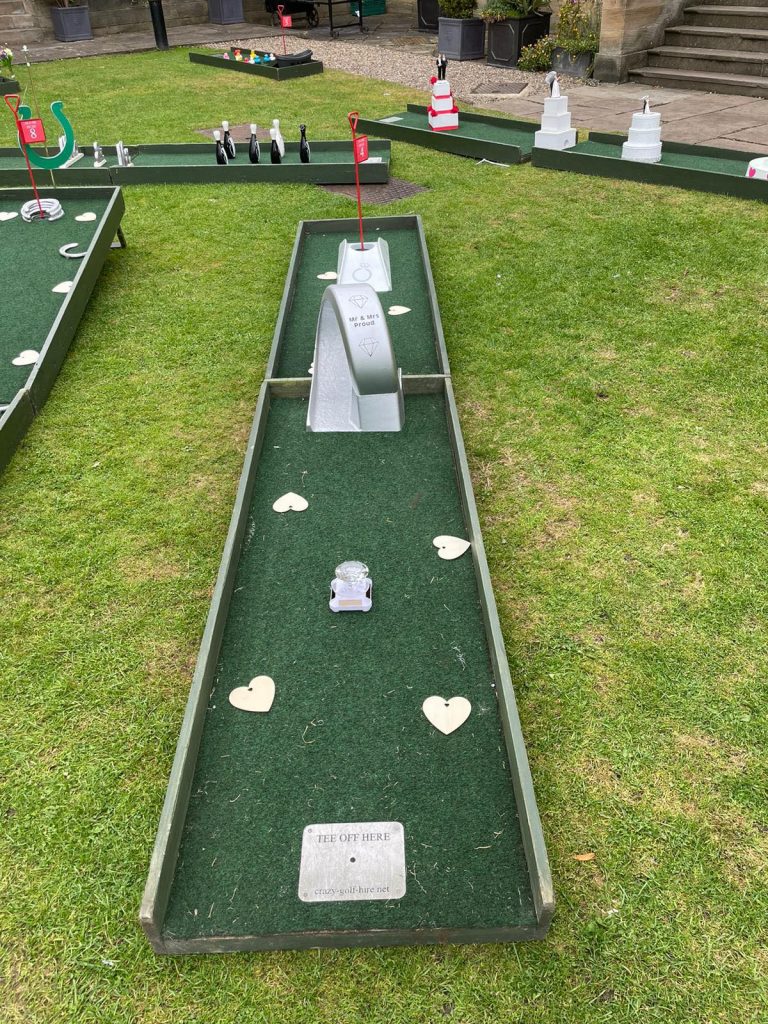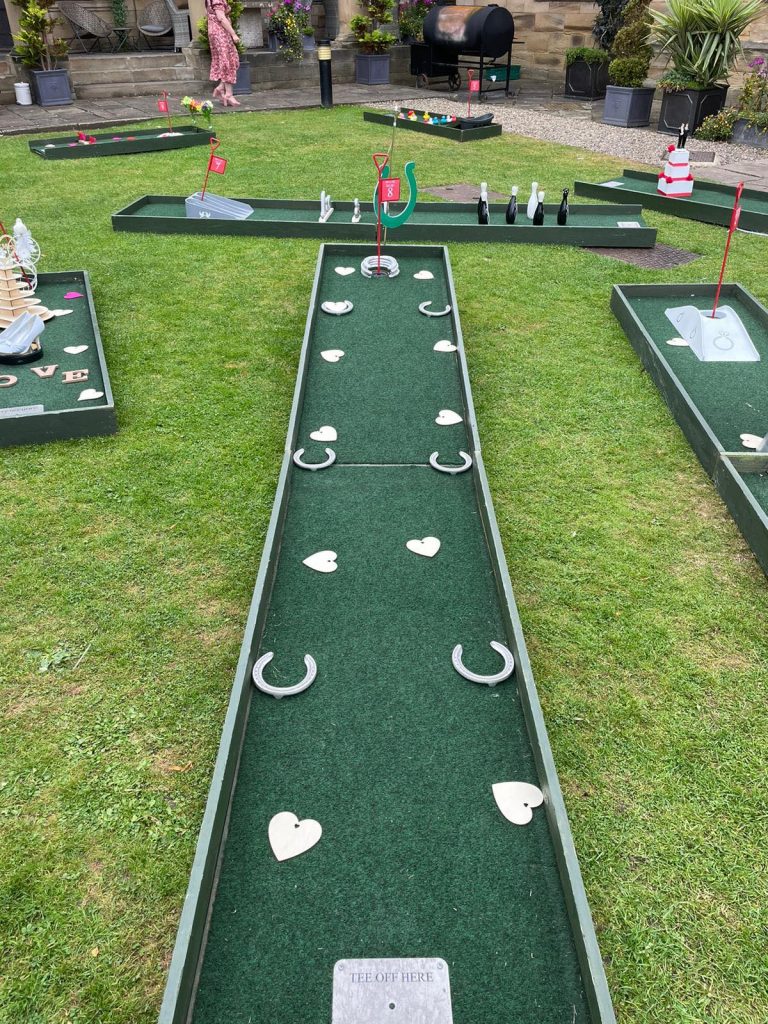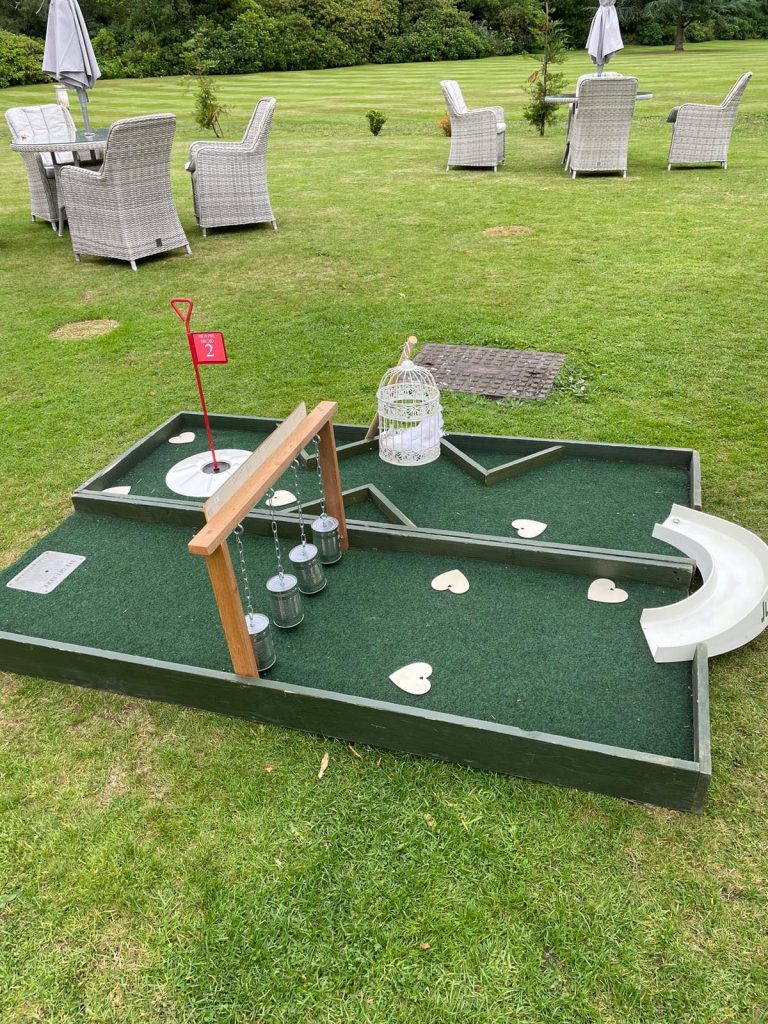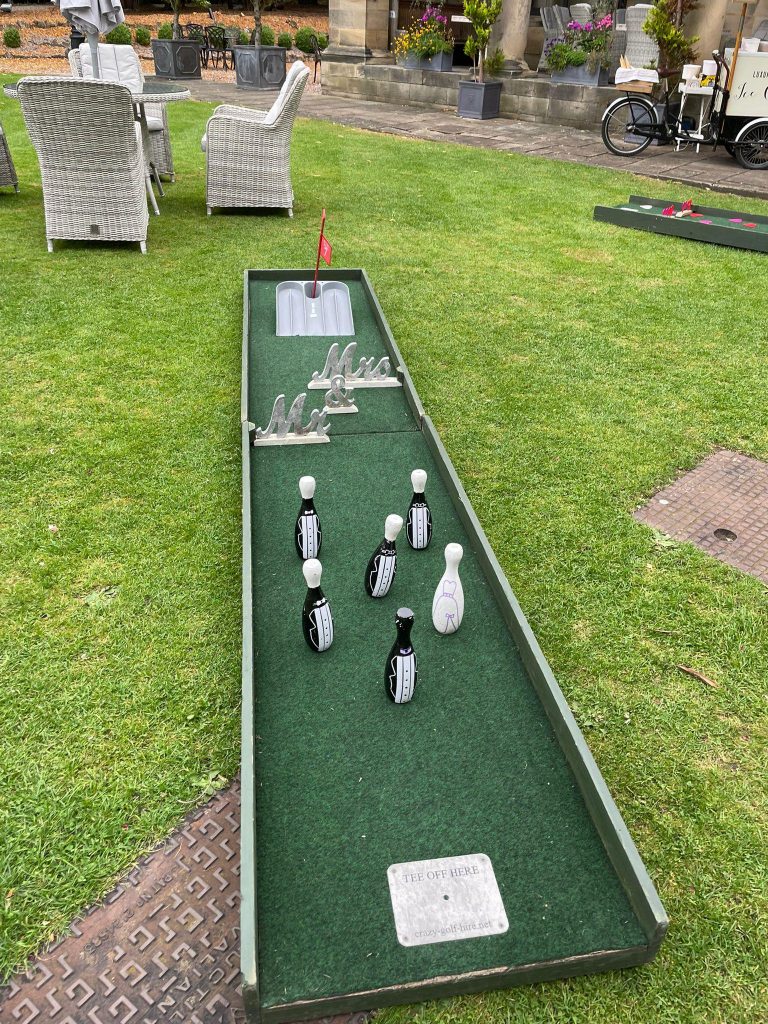One of our favourite games, which is lately seeing something of a resurgence. Easily playable by both young and old, it has something for everyone. Let’s take a quick look at the history of crazy golf.
The game has various names around the world, including mini golf, midget golf, goofy golf, and putter golf. The last name probably being the most accurate as the game is basically the putting part of its parent game.
Golf proper, has a long history. Mention is made of King James II banning the game as it distracted his archers from their practise. Happily James IV decided to repeal the ban for the good reason that he liked playing the game.
There are ancient examples of a similar game being played as far back as 8th Century China, though no doubt if written history existed there may well as been cavemen who likes whacking stones around with their clubs.
Like many things there isn’t a definite ‘inventor’ of the mini golf game. Our Victorian forebears, with their great fear of mixing the genders, dedicated a putting green annex for female players at the famous St Andrews course.
Artificial courses, with obstacles began to emerge during the first part of the 20th Century. The Illustrated London News documented a course in it’s 8th June 1912 edition, called Gofstacle.
Across The Pond
In America, where else, the first mass produced mini golf courses were designed. The first of note was christened ‘Thistle Du’ anc built in Pinehurst North Carolina in 1916.
1927 saw a huge step forward when Garnet Carter created a suitable artificial green made from sand, oil, dye and cottonseed hulls that had been invented by Thomas Fairbairn, a cotton plant owner.
This allowed the game to be installed anywhere, indeed by the late 20’s there were an estimated 150 roof top courses in New York City alone. With tens of thousands across the States. At one point it’s estimated that 2 million people a day were playing the game. The course designed by Garnet was sold as a starter kit for $4500 (about $75,000 now) for which you received the obstacles, equipment and layout design.
Sadly, like many booming industries, mini golf was virtually wiped out across the States by the great depression.
On The Continent
Across the channel, the first documented course was built by a Herr Schroder in Hamburg, Germany. Being inspired from a course he played on a visit to America.
In fact like many modern trends, the game spread out from the USA. The Norman brothers returned to Sweden from there, and promptly formed the company of Norman och Norman Miniatyrgolf, selling a standardised course across Sweden.
The Swedish Minigolf Federation was founded in 1937 and remains the oldest minigolf organisation in the World, with national championships being played since 1939.
The Americans of course commercialised the game, with the first national competition being held in 1930, with a top prize of $2000 equivalent to around $30,000 today.
Mini Golf Obstacles
By the end of the 30’s the familiar obstacles such as windmills and buildings were being added to the game, making it much more like what we consider crazy golf to be nowadays. Many of these were introduced by Joseph and Robert Taylor, two brothers from New York. Many customers and competitors asked if they would build obstacles for them. In the early 1940’s the brothers formed a company to supply the industry.
Even the U.S. military bought from them. Shipping a number of prefabricated courses overseas during the Korean and Vietnam wars. For the troops to use during rest and relaxation periods.
Surface Material
Courses in Europe and the U.K. tended to use tennis field sand bordered by wooden frames as a playing surface. The Americans used the newly developed felt materiel. Being far superior due to its ability to allow water to pass through. Meaning it could be used in inclement weather.
Towards the end of the 1950’s virtually all suppliers carried Taylor Brothers obstacles making them an industry standard. Throughout the 50’s these had been developed to include obstacles with spinning blades and such that required not only accuracy but split second timing.
Modern Mini Golf
Nowadays the game is governed by the World Minigolf Federation, based in Goteborg Sweden. Organising World Championships for everything from kids through to elite players.
There are a number of standardised courses approved by them allowing comparisons for players around the world. The current world record for one round of 18 hole minigolf is 18 strokes. More than a thousand players achieving this score. It should be noted that virtually all of these are on a playing surface made from eternite a fibre cement product. The more popular felt courses seem to be more difficult to play with far fewer players managing a perfect score.
Some Crazy, Crazy Golf Courses
Ahlgrim Funeral Home
Below a Chicago Funeral home is a course designed to allow mourners to take their minds off bereavement. Along with arcade machines and videogames.
New Brighton Championship Course
This course contains replicas of a number of different famous championship holes from the Island Green 17th at TPC Sawgrass or the 18th at St Andrews.
Glow In The Dark Golf
A course in the Netherlands came up with the wacky idea for a glowing golf course. It also has the added quirk of being an adventure story, as completing the holes give you the clues you need to rescue a kidnapped singer.
Holy Crazy Golf Course
This one not only improves your golf score, but saves your soul. Designed around stories from the bible with holes such as Jonah and whale, or Moses and Mount Sinai. You can visit it at the Lexington Centre in Kentucky U.S.A. (where else).
Mayday Golf
Another wacky themed course. You are a survivor of an airplane crash. You use your rescued golf clubs to put your way through various survival scenarios to reach the rescue helicopter at the end. See it at Myrtle Beach South Carolina.
Leisureland Golf
This entry if from the artist Doug Fishbone. He wanted to draw attention to the plight of migrants, refugees and police brutality. So he pulled together a course of political statements.
The history of crazy golf is littered with examples of weird and wacky golf themes. Really the game is a blank canvas and you can have anything you like.
Sources;
Crazy Golf Museum
Mini Golf Creations
